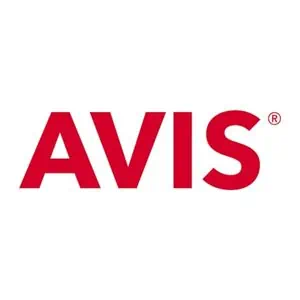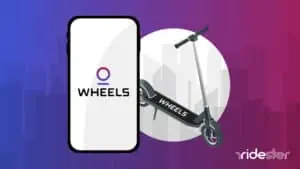Key Takeaways
- Rideshare rentals offer vehicles for drivers without cars, boosting their income opportunities.
- Hertz, Avis, and Rideshare Carz provide insured, maintained cars with various rental plans.
- Services like Getaround and GIG Car Share offer hourly rentals and car-sharing options.
- Considerations include rental terms, fees, insurance, and maintenance for cost-effective rideshare driving.
As of 2022, the ride-hailing industry has surpassed taxis in annual revenue, earning an estimated $45 billion, and is projected to soar up to $54 billion by 2027.
This increase has benefited the rideshare car rental business, as drivers who don’t have cars rely on them to provide the vehicle.
If you like to earn extra income from rideshare driving, your first stop is to get a rental car. Check out some of our top recommended services for rideshare drivers this 2024 and tips on getting started.
You don’t need your own car to enter this industry. A rideshare rental can be more time- and cost-efficient since most companies manage vehicle maintenance.
1. Hertz Car Rental
- Partners with Uber, Lyft.
- Weekly rental, includes insurance.
- Standard maintenance service covered.
2. Avis
- Partners with major rideshare services.
- Weekly rental, unlimited miles.
- Wide vehicle options, luxury available.
- Free insurance, maintenance.
- Weekly or daily rental.
- Includes taxes, roadside assistance.
4. Getaround
- Car-sharing for drivers.
- Hourly rental, $4 for Uber.
- Insurance, unlimited mileage included.
- For San Francisco, Sacramento, Seattle.
- Hourly, daily, prepaid rates.
- Includes 24-hour access option.
- Toyota vehicles only.
- Hourly, daily, weekly rates.
- No membership cost, $25 background check.
6. Zipcar
- Subscription-based, nationwide availability.
- Free first month, then monthly fee.
- Free gas, designated parking.
8. Private Fleet Owner Rental
- Rent from fleet owners.
- Full insurance, regular maintenance.
- Costs vary, local fleet owners.
Ready to spend your free time driving and earning extra bucks? Here’s how to start:
Step 1: Choose a Ride-Hailing Platform
While we have over 20 ridesharing companies, we recommend Uber and Lyft due to their reach and market share—they have the most customers, which means more rides.
Decide which platform to use and create an account. Check the driver requirements for each and see if you’re eligible.
Read this step-by-step guide if you’re interested in becoming a Lyft driver.
One of the best things about Uber and Lyft is their partnership with rental options. You can use the app or visit the platforms’ websites to find a car based on location. Compare the fees and inclusions, and choose how long you want to rent the vehicle.
Step 3: Assess the Rental Fees Against Your Income
Start with a one-week term to see how the service works. Using the same duration, note the hours you spent driving, the extra fees you pay, like taxes and gas, and your net income at the end of your rental.
Getting an exact dollar figure of your take-home pay helps you decide whether to stick to your current rental provider or explore cheaper, more flexible alternatives.
Here are the essential things to look for when searching for a reliable car rental service:
- Rental Agreement: Look for flexible rentals that don’t lock you into long-term contracts. This ensures you’ve got enough flexibility to opt out of the service if something comes up and you can’t continue driving.
- Rental Fees: Compare available payment frequencies and how much. If you don’t plan on driving regularly, finding a service that allows hourly rentals can be more efficient as it costs less.
- Sign-Up Fees: Some car-sharing services, like Getaround, charge a separate membership fee on top of the rental fee. Look for any details on subscription, setup, admin fees, etc.
- Refundable Deposits: It’s common for companies to ask for security deposits as protection for their units. Look for those who give you back the amount upon return of the vehicle.
- Rideshare Insurance: Always choose a provider with auto commercial insurance inclusions to cover potential expenses due to vehicle accidents, injuries, etc.
- Basic Maintenance: Car maintenance is costly, and you don’t want your earnings to shoulder the bulk of the expense. Choose a service that does this for their units.
Frequently Asked Questions
How Long Can You Keep a Rental Car?
This depends on the provider. Avis, for example, allows their vehicles to stay with you for up to 56 days, provided you pay the weekly rentals. Services that rent by the hour will expect you to return the vehicle once your paid time is up.
What Is and Isn’t Covered in Rental Rates?
Common inclusions of the rental rates are base pay, auto insurance, basic vehicle maintenance, and 24/7 roadside assistance. Other fees like taxes, gas, ancillary products, and damage costs outside the insurance terms aren’t part of the rental.
Final Thoughts
Ridesharing is here to stay, and data shows the demand will only grow higher in the coming years. With the increasing cost of owning a vehicle, renting a car is a viable option to do away with ownership and maintenance costs.
Use our guide to sort your options and start your ridesharing gig. Happy driving!












